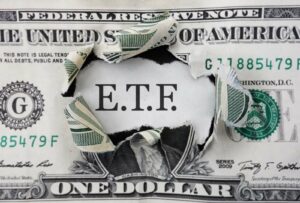In recent months, Congressional financial misconduct has featured heavily in the news. In many of our blog posts, we’ve covered Members of Congress’ financial transactions and discussed the implications of trading based on nonpublic information. Such potential trades recently made national news when several Senators and Members of the House were accused of selling off their stock holdings after attending a briefing on the COVID-19 pandemic, based on information that that was not available to the public. While many citizens were justifiably upset at this apparent abuse of power, most are unfamiliar with the specific rules governing Congress’ financial transactions. Those rules are spelled out in the STOCK (Stop Trading on Congressional Knowledge) Act of 2012.
The STOCK Act was first introduced in 2005 in the House, accompanying significant publicity for an academic study suggesting that Members of Congress beat the market significantly with their own investments. However the Act failed to gain traction until after the 2008 financial crisis. A 2010 Wall Street Journal article discusses an attempt to pass the bill, outlining examples of self-dealing by Members of Congress and their legislative aides. Despite the backing of several Representatives, the STOCK Act was not passed until 2012. The version that we’ve talked about was introduced in the Senate by Joseph Lieberman, a Democratic-leaning independent with a reputation as a moderate. His version was explicitly intended to curtail financial trading based on nonpublic information among Members of Congress and other government employees. This echoes rules barring insider trading for employees of banks and other financial institutions. Violations of these rules can incur hefty fines and lengthy prison sentences. Insider trading cases are investigated by the SEC (Securities and Exchange Commission), an independent governmental agency with nebulous direct authority over Congress. The STOCK Act was intended to create rules by which Members of Congress and their staff must abide without triggering an SEC investigation, thus sidestepping the Constitutional issue of the SEC monitoring the legislative branch.
The larger issue of how Members use their access to nonpublic and confidential information in making decisions will be discussed in a separate article. The root of the problem, as relates to financial markets, is that by the very nature of their work, Members are briefed on matters of national security, regulation, and the economy. This inherently gives them access to nonpublic information that could benefit them in the stock market. The February COVID related stock sell-off is a prime example. Senators were shown classified information by experts on the seriousness of the pandemic and the likelihood of it causing a major economic slowdown and a significant loss of life. While they may not have been permitted to share this information with the public, several Senators decided to act in their personal interest anyway, and sold off their holdings in companies that would be hit hardest by the disease’s effects (airlines, cruise ship holding companies, etc) and bought stock in healthcare firms and work-from-home technologies. More information on the trades in question can be found here. The fact that these trades are questionable and illustrate problems of conflicts of interest is not generally debated. However, it likely that few of these Members will face actual charges of insider trading because the legalistic definition of insider trading focuses on directly connecting the trade to a specific piece of information; Members have claimed their trades were caused by some other trigger than the legislative briefing.
The STOCK Act initially passed with broad bipartisan support, with a final vote of 96-3; supported by a similar majority in the House. (Interestingly, Senator Burr was one of those three “no” votes). At the time, the Act was seen as an important anti-corruption measure, and the signing of the bill into law by President Obama was attended by many vulnerable congressional incumbents. (The STOCK Act: Refuge of the most vulnerable congressmen in America) The bipartisan nature of the bill, even in a contentious election year, illustrates its “common sense” nature.
Despite the lengthy process by which it was first passed, the STOCK Act did not last long in its initial form. In 2013, a NAPA (National Academy of Public Administration) report commissioned by Congress determined that the online disclosures mandated by the Act put federal employees at risk for identity theft, and were ineffective at preventing congressional self-dealing. A proposed amendment to remove the online disclosure requirement passed the House and Senate by unanimous consent, much to the chagrin of observers, and was quickly signed into law.
The removal of the online disclosure requirement made it significantly more difficult for the general public to view Congress’ financial disclosures. The lack of transparency in filing disclosures, as well as the frequent requested extensions to filing deadlines, make tracking politicians’ stock choices difficult. At FinePrint, we’re compiling financial disclosures to make it easier for the average person to monitor Congress. We hope that this helps to prevent Congressional self-dealing and makes it easier to hold Congress accountable for suspicious transactions.





